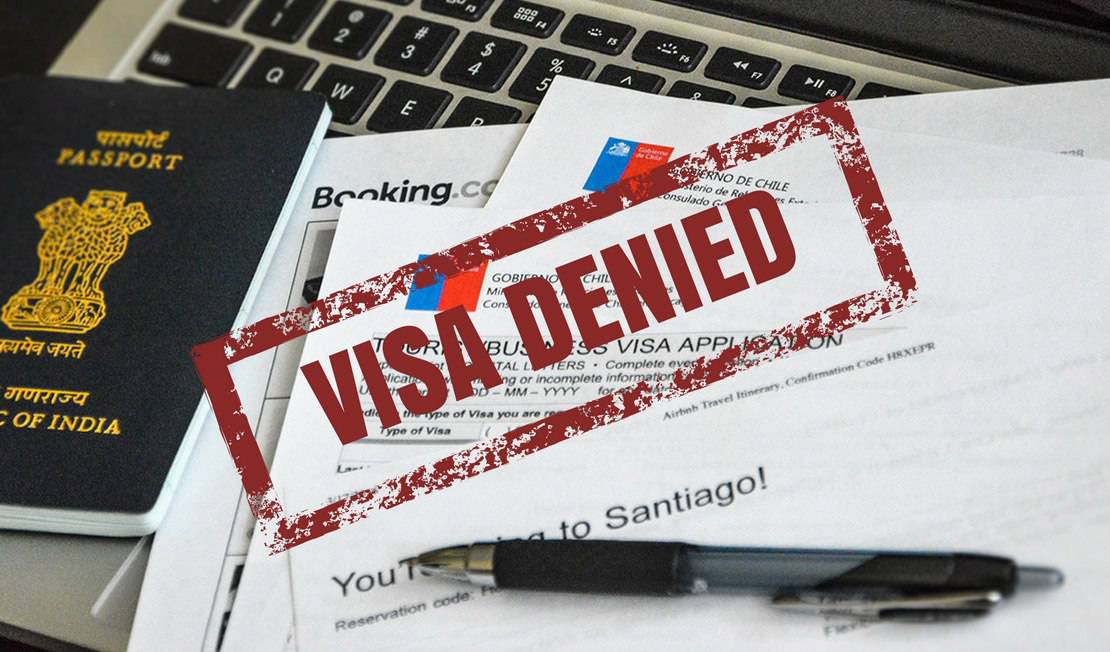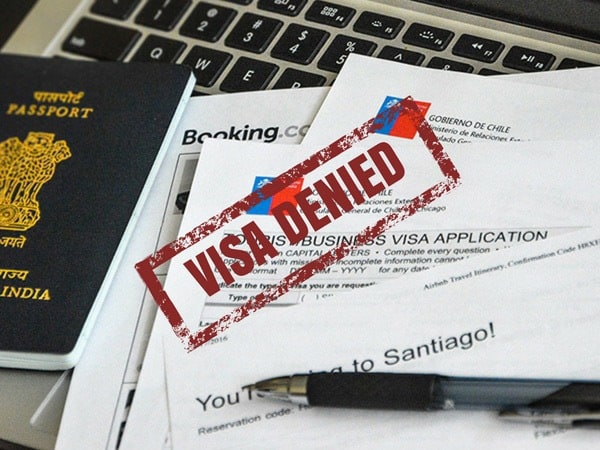

Visa Guides: What to Do If Your Visa Application is Delayed or Denied provides practical advice for navigating the complexities of visa applications. Imagine finally receiving that acceptance email, only to be faced with a delayed or denied application. Frustration and uncertainty can quickly set in, clouding your judgment. This comprehensive guide will help you understand the common causes of delays and denials, and equip you with strategies for addressing these challenges. We will delve into different scenarios, providing actionable solutions and steps to help you resolve issues and increase your chances of visa approval. This guide is structured to address the key aspects of handling visa delays or denials, starting from initial troubleshooting to professional help.
Understanding Visa Application Delays
Common Causes of Delays
Visa application delays are a frustrating reality for many international travelers. Several factors can contribute to these delays. For example, administrative issues at the consulate, such as backlogs or staff shortages, can significantly impact processing times. Insufficient or inaccurate documentation, including missing documents or errors in filling out the application forms, can lead to delays. The embassy or consulate may request additional information or documents which significantly lengthens the approval process. Sometimes, security checks, or verification procedures, are necessary. Be mindful of these typical causes and prepare accordingly. Also, remember to keep track of your application’s status frequently to know the exact reason behind any delays.
Proactive Steps to Take
Staying proactive is key in these situations. Regularly checking the embassy website for updates and processing times is essential. Communicating with the embassy or consulate, and seeking clarification on potential issues or queries, will help to keep the application process on track. Furthermore, ensuring your application is complete with all necessary documents and is filled out correctly can avoid potential delays. Finally, understanding the visa requirements and procedures beforehand and preparing accordingly can help mitigate potential obstacles. For example, if you’re unsure about the documents required, consulting the embassy website or contacting them for guidance can save you time and avoid unnecessary delays or errors.
Handling a Visa Application Denial
Assessing the Denial Letter
When a visa application is denied, understanding the specific reasons behind the denial is crucial. Carefully review the denial letter. It will often state the precise reasons for the rejection, which can include insufficient documentation, misrepresentation of information, or a mismatch between your application and the eligibility criteria. The denial letter can give you clues to identify and correct any errors. Take note of these details and plan your next steps.
Options for Appealing a Visa Denial
The process for appealing a visa denial varies depending on the country or territory. You may have the option to provide additional documents or evidence that were not included in your initial application to support your case. It’s essential to thoroughly research the specific guidelines and procedures for appealing the visa decision. For instance, some embassies may require you to provide additional supporting documentation and/or initiate an interview. Often, professional assistance is helpful; consulting with an immigration lawyer or consultant is recommended to understand your rights and leverage professional expertise in navigating this process.
Navigating Visa Application Processing
Staying Informed About the Process
Staying informed about visa processing is critical to a successful application. This involves keeping up to date with the current requirements for your visa type and the country to which you are applying. The embassy’s official website should provide a comprehensive overview of the application process and any changes that may affect your application. Regular checks on the embassy or consulate’s website will provide insights into the processing time for visa applications. Understanding the duration of the process can help you manage your expectations and potential delays.
Tracking Your Application Status
Keep a close eye on your application’s status. If you have any doubts or are unsure of the status of your application, contacting the embassy or consulate for a status update is appropriate. You can also check if they have specific online tools or portals for tracking visa applications. Use these tools or services if available, as they can be a great resource for keeping track of your application’s progress. Remember, efficient tracking helps manage expectations and potential delays, and allows you to promptly address any problems.
The Role of Professional Help
When to Seek Professional Advice
If you’re facing a complex or challenging visa application process, seeking professional help is recommended. An immigration lawyer or consultant specializes in visa applications and can provide invaluable guidance and support. They understand the complexities of visa regulations and can assess your individual situation, providing advice and assistance throughout the entire process. These professionals can analyze your case, understand the possible causes of delays, suggest solutions, and help you make informed decisions to get the best possible outcome.
Benefits of Working with a Professional
Working with professionals can save time, effort, and resources, ultimately increasing your chances of success. Professional assistance can significantly expedite the process. They will help you understand the specific visa regulations, ensuring your application is fully compliant. These experts can present a well-supported case and help navigate any challenges encountered during the application or appeal process, and may be well-versed in the particular requirements and procedures of the country you are applying to. This expertise can translate to quicker processing times and a higher likelihood of a positive outcome.
Proactive Measures for Smooth Application
Thoroughly Understanding Requirements
Thoroughly reviewing and understanding the specific requirements of the visa application is of utmost importance. Be sure to gather all required documents, ensuring that they are complete and accurate. Consult the official guidelines and check for any updates in the requirements. This proactive measure will significantly reduce potential issues and delays. Understanding the guidelines of the country you are applying to will help avoid missing any vital information.
Preparing Supporting Documentation
Preparing comprehensive supporting documentation is crucial for a strong application. Evidence of your ties to your home country, your financial stability, and your travel plans are essential aspects to highlight during the application. This documentation will significantly support your application and strengthen your case, increasing the likelihood of a successful outcome. Gather relevant documentation to support these points. This preparation will help you stand out and position you favorably.
Tips for Effective Communication with Embassies
Communicating Clearly and Professionally
Effective communication with embassies or consulates is vital for successful visa applications. Maintaining a professional and courteous demeanor throughout the communication process is crucial. Clearly state your request or query in concise and well-structured correspondence, and maintain meticulous records of all interactions. Maintain detailed records of all communications. Keeping detailed records of all interactions and responses will ensure the smooth processing of your application.
Following Up Appropriately
Following up with appropriate communication in a timely manner is crucial. Ensure that the embassy or consulate receives your communication. Use the recommended channels, such as email or a designated contact form. Proper follow-up ensures that your inquiry is acknowledged and addressed. Knowing how to follow up appropriately will help manage expectations and keep the communication process on track. Be sure to address any specific questions about your application by contacting the embassy or consulate promptly and professionally.
Prevention is Key
Ensuring Application Accuracy
Ensuring accuracy in your visa application is crucial to avoiding potential delays and denials. Carefully review all the information provided, and double-check that all details and documents are accurate and complete. Avoid any errors in filling out the forms, and meticulously double-check the accuracy of your application, in order to minimize potential issues. Correct any inaccuracies promptly to help ensure a smooth application process.
Understanding the Process Thoroughly
Thorough understanding of the visa process will prevent pitfalls. Researching the process beforehand, and making sure you understand all the requirements and regulations, will mitigate the risk of application delays or rejections. Understanding the visa process will help you anticipate potential issues and ensure your application is complete and compliant with all regulations.
Staying Organized
Maintaining Precise Records
Maintaining accurate and organized records is vital throughout the entire visa application process. Keep copies of all application forms, supporting documents, communications, and receipts. Organize your files chronologically and ensure easy retrieval of specific documents. This will help significantly if there’s a need to address discrepancies or follow-up with embassy inquiries. Maintaining meticulous records will ease the process and make it easier to locate the information when needed.
Managing Your Time Effectively
Effective time management during the visa application process is crucial. Be sure to allow sufficient time for application processing. Knowing the typical processing time will help to avoid undue stress. The more time you have to plan and work through the process, the less rushed you’ll feel. This will help reduce potential delays or mistakes in your application.
FAQ:
What are the common reasons for visa application delays?
Visa application delays can stem from numerous factors, including administrative backlog at the consulate or embassy, incomplete or inaccurate application documents, requests for additional information, or security checks. Sometimes, delays are also due to the sheer volume of applications or if the embassy or consulate is short-staffed. It’s crucial to stay informed about any specific reasons for delays that might apply to the country you are applying to, by consulting the relevant embassy’s website or contacting them directly.
How long should I wait before contacting the embassy for an update on my visa application?
There’s no one-size-fits-all answer to how long you should wait before contacting the embassy. However, it’s advisable to follow up around 6 to 8 weeks after submitting your application if you haven’t received any updates yet. Be patient, but don’t hesitate to initiate contact. Remember to keep records of all communications with the embassy or consulate. Keep in mind that some countries may have different processing times; be sure to check on their specific website for accurate information.
What are my options if my visa application is denied?
If your visa application is denied, you have options. One approach is to appeal the decision, presenting compelling evidence of your case. You might submit additional documents to address the reasons for the denial. Another is to consult with an immigration lawyer or consultant who specializes in visa appeals. They can guide you through the appeal process, ensuring your application meets the necessary standards to have a chance at success. Consider researching the specific appeals process for the country you are applying to.
In conclusion, navigating visa application delays or denials requires a proactive approach, a thorough understanding of the process, and a willingness to seek professional help if necessary. By following the steps outlined in this Visa Guides: What to Do If Your Visa Application is Delayed or Denied article, you can significantly increase your chances of a positive outcome. If you’re facing visa issues, reach out to a qualified immigration lawyer or consultant. A consultation will help you strategize for an appeal, and they can help navigate the complexities of the application process, ensuring your visa application doesn’t face unforeseen obstacles. Be proactive, persistent, and prepared to advocate for your case for a smoother path to your destination.